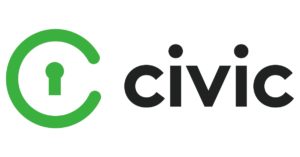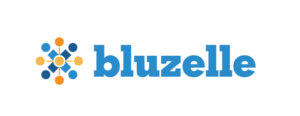Identity Review | Global Tech Think Tank
Keep up with the digital identity landscape.
Nowadays, privacy is at the forefront of internet discussions. Consumers are looking for new ways to take ownership of their personal data. While traditional centralized identity ensures that all identity management happens in one framework, decentralized identity utilizes a web of trusted frameworks so users can manage their own data.

Here are a list of decentralized identity companies to follow in the space:
Xage is an information technology company that specializes in providing blockchain-secure solutions for companies. It is the first of its kind, and as of 2022, Xage claims to have over 1,000 companies using its security solution according to its website. According to a Ledger Insight article, Xage’s product Security Fabric utilizes “blockchain by storing data separately across a decentralized network [which] are checked against one another regularly. If something looks amiss, it’s easily found.” Furthermore, Xage implements an arsenal of security techniques such as a zero-trust framework to maximize security for OT, IT, and cloud services.

Authentiq offers users an option to securely sign into websites and services with just your phone – in essence, Authentiq provides users with a digital identity, mobile wallet. The company offers a variety of features for your mobile device, such as the ability to sign into websites without using traditional usernames and passwords, authenticate, share personal information, and remotely sign-out on a device.

Similar to Authentiq, Unum ID is also a one-stop method of identity authentication. On top of a passwordless mobile sign in feature, Unum ID offers a marketplace of verified identity called Sharefied Identity. It utilizes an ID network where there are three parties involved: issuers, users, and relying parties. In this case, the issuer utilizes Unum ID to create and issue the user a verified ID. When the user wants to create an account for a different website or service, they are able to use the verified ID to simplify the process. The service is decentralized because it stores personal data directly in each user’s phone and not in its servers.

Codex offers users a way to verify and authenticate collectibles. When given an item, users are able to search up the item’s provenance on the Codex registry – which is secured on blockchain – in order to authenticate the collectible and determine its value. Furthermore, Codex allows users to create records of items and upload them onto the search index.

At the forefront of decentralized identity companies, Spruce offers two main functions: Spruce ID and Kepler. Firstly, Spruce ID is a toolkit that gives users the ability to sign on and share information through a variety of open-source tools such as DIDKit, Rebase, Keylink, and Credible. Secondly, Kepler is a data storage that users can access with their Web3 wallets. Kepler stores digital assets, personal files, and more, and the digital storage unit also gives users the option to share their data via smart contracts. Recently, Spruce has helped lead a new initiative to allow Web3 users to sign in and authenticate using their Etherum wallets.

Particularly focused on the Decentralized Finance (DeFi) space, Spring Labs was launched by founders Adam Jiwan, John Sun, and Anna Fridman as a financial technology company. Spring Labs makes data exchanges more secure and decentralized by allowing parties to directly exchange information with each other while the network checks for fraud and verification. Furthermore, with Spring Labs’ data exchange and clean rooms, users can freely share information without the risk of underlying data being exposed.

One of the first decentralized identity companies to intersect with the communications industry, Pravica is a communication service with end-to-end encryption that offers secure emails, chats, storages, and even calendars. All Pravica authentication is done via Blockchain, and user’s will have private keys to all of their information. An important thing to note is that communication is only possible from one end to another if both parties are using Pravica.

Civic offers individuals self-sovereign identity and a way to verify the identity and authenticity of other users. Firstly, Civic offers users an option to only share necessary data and keeps the remaining private. Furthermore, Civic helps organizations verify information about others through the Civic Pass, which helps cut down on fraudulent activities and satisfy the Know-Your-Customer (KYC) requirements, which is especially useful in Web3 marketplaces.

Web3Auth (formerly Torus) offers Web3 users a wallet that holds and manages all of the user’s keys in order to simplify the Web3 login process into a singular click. Specifically, Web3Auth uses its own product called a tKey that acts as a customizable two-factor authentication, and it splits data between the user’s nodes and the nodes on the network. In essence, Web3Auth is attempting to mainstream web3 access by making the login process much more simple and secure.

Bluzelle is a data storage and management company that functions similarly to oracle as a cloud service – but for web3. However, instead of providing the storage itself, Bluzelle matches users who are willing to offer up storage with users, mostly dApp developers, who need the storage. Users who rent out their data storage are compensated with Bluzelle’s native tokens BLZ. In essence, Bluzelle functions similarly to airbnb, but for databases on web3.
ABOUT THE WRITER
Daniel Shin is a contributor to Identity Review from the University of Southern California.
Do you have information to share with Identity Review? Email us at press@identityreview.com. Find us on Twitter.
RELATED STORIES